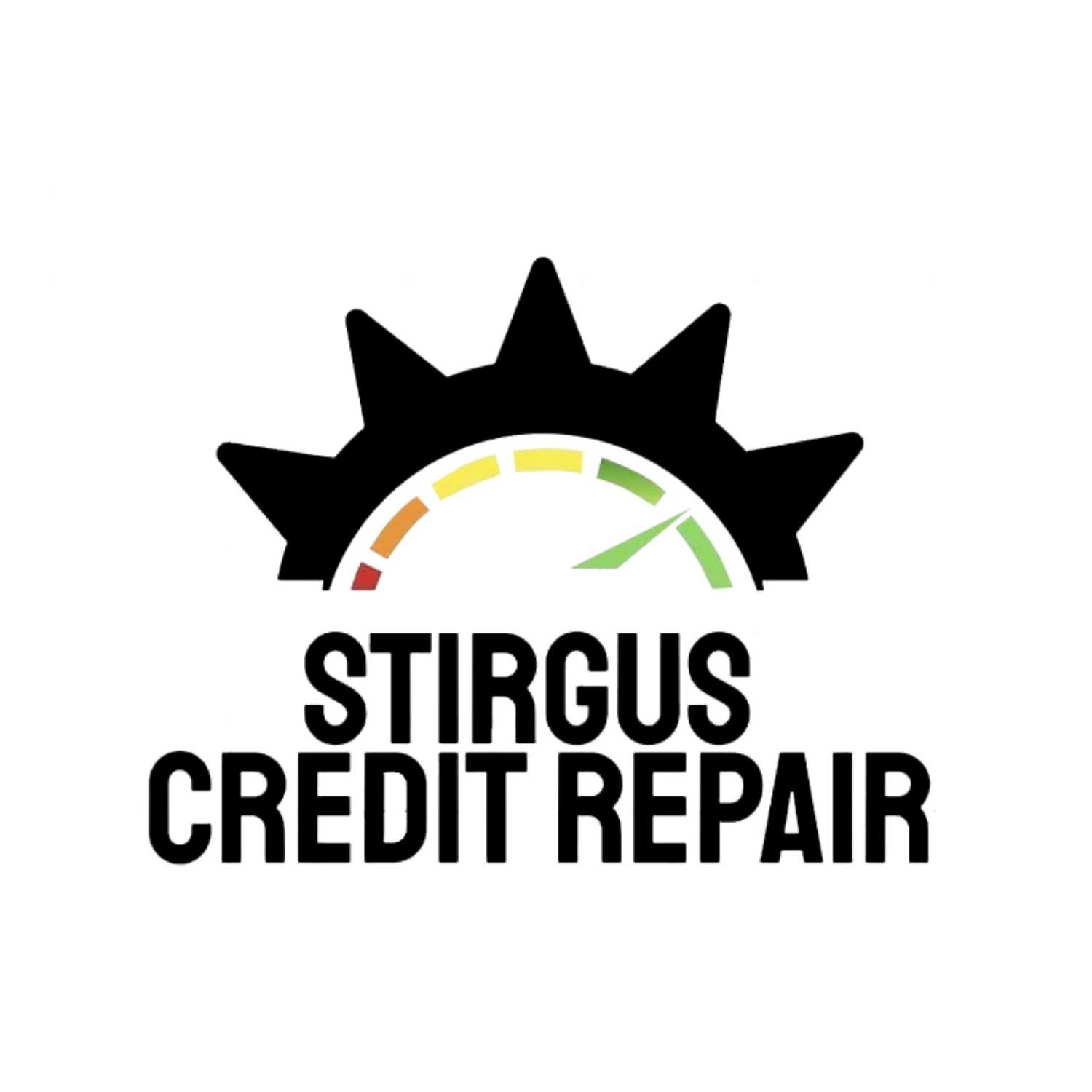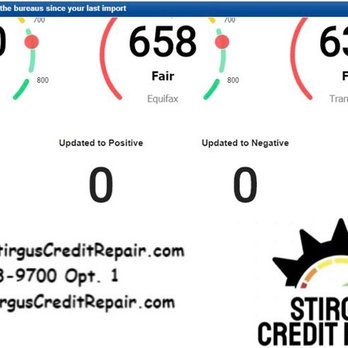In the realm of financial management, credit repair has emerged as a crucial and sought-after service. One company that has been gaining recognition in this field is Stirgus Credit Repair. Providing comprehensive solutions to mend and enhance credit scores, Stirgus Credit Repair stands out for its unparalleled expertise and dedication to helping individuals regain their financial stability. With a meticulous approach and a commitment to customer satisfaction, their services have proven to be instrumental in empowering countless clients to rebuild their creditworthiness and pave the way toward a brighter financial future. With Stirgus Credit Repair, individuals can confidently embark upon a journey of credit repair, armed with the knowledge that a team of professionals is tirelessly working to restore their credit standing.
1. Understanding Credit Repair
1.1 What is Credit Repair?
Credit repair refers to the process of improving your creditworthiness and repairing any negative or inaccurate information on your credit report. This is achieved through various strategies and techniques to ensure that your credit history is fair, accurate, and reflective of your current financial circumstances. By addressing errors, disputing inaccuracies, and managing your debts effectively, credit repair aims to enhance your credit score and improve your overall financial standing.
1.2 How Does Credit Repair Work?
The credit repair process typically involves several key steps. First, you will need to obtain and review your credit reports from the major credit bureaus. These reports contain information on your credit history, including account balances, payment history, and any negative marks. Once you have identified any errors or inaccuracies, you can proceed to dispute them with the credit bureaus and the creditors involved.
Negotiating with creditors is another important aspect of credit repair. By reaching out to your creditors, you may be able to negotiate lower interest rates, extended repayment terms, or even debt settlement options. This can help alleviate financial burdens and make managing your debts more feasible.
Additionally, credit repair entails developing good credit habits. This includes making your payments on time, keeping your credit utilization ratio low, and avoiding excessive debt. By demonstrating responsible financial behavior over time, you can gradually rebuild and improve your credit score.
1.3 The Importance of Credit Repair
Credit repair is crucial for individuals who have a poor credit history or inaccuracies on their credit reports. A low credit score can have significant consequences, affecting your ability to secure loans, obtain favorable interest rates, and even rent a home or apartment. By repairing your credit, you can open doors to various financial opportunities and improve your overall financial health.
Furthermore, credit repair is essential for individuals who have experienced identity theft or fraudulent activity on their credit accounts. By addressing these issues promptly, you can minimize the negative impact on your credit and protect yourself from further harm.
1.4 Common Credit Repair Misconceptions
There are several misconceptions surrounding credit repair that can hinder individuals from taking necessary steps to improve their credit. One common misconception is that credit repair is a quick fix or an overnight solution. In reality, repairing your credit takes time and effort, as it involves addressing errors, negotiating with creditors, and consistently demonstrating responsible financial behavior.
Another misconception is that credit repair is illegal or unethical. While there have been instances of fraudulent credit repair companies, there are legitimate and reputable credit repair services available. It’s important to conduct thorough research and choose a reputable company that adheres to the laws and regulations governing credit repair.
2. Signs You Need Credit Repair
2.1 Low Credit Score
A low credit score is one of the strongest indicators that you may benefit from credit repair. A credit score below 600 is generally considered poor and can significantly limit your access to credit and financial opportunities. If your credit score falls in this range or even slightly above, it is crucial to take steps to repair your credit and improve your score.
2.2 Difficulty Securing Loans or Credit
If you have been consistently denied loans or credit applications, it may be a clear sign that your credit needs repair. Lenders and creditors review your credit history and score to assess your creditworthiness and determine the risk associated with lending you money. A poor credit history can make it challenging to obtain loans, credit cards, or even secure favorable interest rates.
2.3 High Interest Rates
When your credit score is low, lenders and credit card companies may view you as a higher-risk borrower. As a result, they may offer higher interest rates on loans, credit cards, and other financial products. These higher interest rates can significantly increase the cost of borrowing and make it more difficult to manage your debts. By repairing your credit, you can potentially qualify for lower interest rates and save money in the long run.
2.4 Denial of Rental Applications
Many landlords and property management companies review the credit history of potential tenants as part of their screening process. A poor credit history can lead to rental applications being denied, making it challenging to find suitable housing. If you have been denied rental applications due to your credit history, credit repair can be crucial in improving your chances of securing a rental property.
2.5 Inaccurate or Outdated Information on Credit Report
Errors and inaccuracies on your credit report can have a significant impact on your credit score. These inaccuracies can include incorrect payment histories, outdated account statuses, or even accounts that do not belong to you. By reviewing your credit reports regularly, you can identify any discrepancies and take steps to dispute and correct them.

This image is property of media.rss.com.
3. The Stirgus Credit Repair Method
3.1 Introduction to Stirgus Credit Repair
The Stirgus Credit Repair Method is a comprehensive approach to credit repair that focuses on addressing each individual’s unique credit challenges. With a team of experienced credit repair specialists, Stirgus aims to guide individuals through the credit repair process, assisting them in improving their credit scores and achieving financial stability.
3.2 Overview of the Process
The Stirgus Credit Repair Method consists of several key steps to ensure a thorough and effective credit repair process. First, a dedicated credit repair specialist will work with you to obtain and review your credit reports from the major credit bureaus. This step is crucial in identifying any errors, inaccuracies, or negative marks that need to be addressed.
Once the credit reports have been thoroughly reviewed, the Stirgus team will help you draft dispute letters to the credit bureaus and the creditors involved. These letters will outline the errors or inaccuracies and request their removal or correction. The Stirgus team will closely monitor the progress of these disputes and provide regular updates to ensure that the necessary changes are made to your credit reports.
In addition to disputing errors, Stirgus also specializes in negotiating with creditors on your behalf. By leveraging their expertise and relationships with creditors, the Stirgus team can negotiate lower interest rates, extended repayment terms, and even debt settlement options. These negotiations can help you manage your debts more effectively and reduce the financial burden.
3.3 Customer Success Stories
Stirgus takes pride in the success stories of their clients who have benefited from their credit repair services. These success stories showcase the positive impact that credit repair can have on individuals’ lives. Each success story is unique and demonstrates the potential for individuals to overcome financial challenges and achieve their financial goals through credit repair.
3.4 Benefits of Choosing Stirgus Credit Repair
Choosing Stirgus Credit Repair offers several benefits to individuals seeking to repair their credit. The expertise and experience of the Stirgus team can significantly expedite the credit repair process and maximize the chances of achieving positive results. By working with Stirgus, individuals receive personalized attention, tailored strategies, and ongoing support throughout their credit repair journey.
Furthermore, Stirgus abides by the laws and regulations governing credit repair, ensuring that their services are ethical and legal. This commitment to compliance provides clients with peace of mind and confidence in the process.
4. Steps to Repairing Your Credit
4.1 Obtaining and Reviewing Your Credit Reports
The first step in repairing your credit is to obtain and review your credit reports from the major credit bureaus: Equifax, Experian, and TransUnion. This can be done for free once a year through AnnualCreditReport.com. Reviewing your credit reports allows you to identify any errors, inaccuracies, or negative marks that may be impacting your credit score.
4.2 Identifying and Disputing Errors or Inaccuracies
Once you have obtained your credit reports, carefully review them for any errors or inaccuracies. Common errors can include incorrect payment history, outdated account statuses, or even accounts that do not belong to you. When you identify these errors, it is important to dispute them with both the credit bureaus and the creditors involved. This can be done through written dispute letters, clearly outlining the errors and requesting their removal or correction.
4.3 Negotiating with Creditors
Negotiating with creditors is a crucial aspect of credit repair, especially if you have outstanding debts or negative marks on your credit reports. By reaching out to your creditors and explaining your situation, you may be able to negotiate lower interest rates, extended repayment terms, or even debt settlement options. These negotiations can help alleviate financial burdens and make managing your debts more feasible.
4.4 Debt Consolidation or Debt Management
If you are struggling with multiple debts, debt consolidation or debt management may be viable options to consider. Debt consolidation involves combining multiple debts into one loan with a single monthly payment. This can help simplify your finances and potentially reduce the overall interest rate.
Debt management, on the other hand, involves working with a credit counseling agency to create a repayment plan that fits your budget. The agency negotiates with your creditors on your behalf to lower interest rates and create a manageable repayment schedule. Both debt consolidation and debt management can be effective strategies for managing and paying off your debts.
4.5 Developing Good Credit Habits
Repairing your credit is not only about addressing errors and negotiating with creditors. It also involves developing good credit habits to demonstrate responsible financial behavior. This includes making your payments on time, avoiding excessive debt, and keeping your credit utilization ratio low. By consistently practicing these habits, you can gradually rebuild and improve your credit score.

This image is property of i.ytimg.com.
5. Choosing the Right Credit Repair Service
5.1 Researching Different Credit Repair Companies
When choosing a credit repair service, it is essential to conduct thorough research to ensure you select a reputable company. Gather information on different credit repair companies, their track record, and the services they offer. Look for companies with positive reviews, a strong reputation, and a demonstrated commitment to helping individuals improve their credit.
5.2 Reading Reviews and Testimonials
Reading reviews and testimonials from previous clients can provide valuable insights into the effectiveness of a credit repair service. Look for testimonials that highlight positive experiences and successful outcomes. However, exercise caution and consider reviews objectively, as not all reviews may be genuine or unbiased.
5.3 Assessing the Costs and Fees
Credit repair services typically charge fees for their services. It is important to assess and compare the costs and fees of different credit repair companies. Ensure that the fees are reasonable and transparent, and that there are no hidden charges. Consider the value provided by the company in relation to the fees charged to make an informed decision.
5.4 Ensuring Compliance with Credit Repair Laws
Credit repair companies must adhere to the laws and regulations governing the credit repair industry. Ensure that the company you choose operates in compliance with these laws, such as the Credit Repair Organizations Act (CROA). This ensures that your rights as a consumer are protected and that the company’s practices are ethical and legal.
5.5 Considering Additional Services Offered
Aside from credit repair, some companies may offer additional services to help you achieve your financial goals. These services can include credit monitoring, financial counseling, or debt management programs. Consider your specific needs and goals to determine if these additional services align with your objectives.
6. DIY Credit Repair vs. Hiring a Professional
6.1 Pros and Cons of DIY Credit Repair
DIY credit repair involves individuals taking on the credit repair process themselves, without the assistance of a professional credit repair service. There are pros and cons to choosing the DIY approach.
One advantage of DIY credit repair is the potential cost savings. Hiring a professional credit repair service can involve fees, whereas DIY credit repair allows you to handle the process independently. Additionally, taking control of the credit repair process can give you a deeper understanding of your financial situation and empower you to make more informed financial decisions in the future.
However, DIY credit repair has its limitations. It requires a significant investment of time and effort to research the credit repair process, learn about applicable laws and regulations, and effectively negotiate with creditors. Without professional expertise and guidance, there is also a higher risk of overlooking important details or making mistakes that could negatively impact your credit repair progress.
6.2 Benefits of Hiring a Professional
Hiring a professional credit repair service offers several benefits that can expedite the credit repair process and potentially yield more favorable results. Credit repair professionals have extensive knowledge and expertise in handling credit-related issues, navigating the complexities of the credit system, and negotiating with creditors. They have industry connections and established relationships with businesses and creditors, which can enhance the effectiveness of the credit repair process.
Furthermore, professional credit repair services have access to resources, tools, and software that can streamline the credit repair journey. They can efficiently track and monitor the progress of credit disputes, ensuring that errors and inaccuracies are appropriately addressed. Professional services also offer personalized attention and tailored strategies, taking into account your unique credit challenges and financial goals.
6.3 Factors to Consider When Deciding
When deciding between DIY credit repair and hiring a professional, there are several factors to consider. These include your personal time availability, level of familiarity with credit repair laws and processes, and the complexity of your credit situation. If you have limited time, lack in-depth knowledge of the credit repair process, or are dealing with complex credit issues, hiring a professional credit repair service may be the more practical and effective option. However, if you are committed to researching and learning about credit repair, and have the time and resources to handle the process independently, DIY credit repair may suit your needs.

This image is property of s3-media0.fl.yelpcdn.com.
7. Maintaining Good Credit After Repair
7.1 Importance of Building and Maintaining Good Credit
Repairing your credit is only the first step in achieving long-term financial stability. It is equally important to build and maintain good credit habits to sustain a healthy credit score. Good credit is essential for securing future loans, obtaining favorable interest rates, and gaining access to financial opportunities.
Maintaining good credit can also provide financial peace of mind and the flexibility to pursue your goals, whether that be buying a home, starting a business, or pursuing higher education. By staying disciplined and responsible with your finances, you can continue to reap the benefits of good credit and avoid falling into previous credit pitfalls.
7.2 Tips for Sustaining a Healthy Credit Score
To sustain a healthy credit score, there are several tips and practices to incorporate into your financial habits. First and foremost, continue to make your payments on time. Late or missed payments can have a significant negative impact on your credit score. Set up automatic payments or create a reminder system to ensure timely payments.
Additionally, keeping your credit utilization ratio low is important for maintaining good credit. Aim to use only a small percentage of your available credit, ideally less than 30%. This demonstrates to lenders and creditors that you are using credit responsibly and not relying heavily on credit to meet your financial needs.
Regularly reviewing your credit reports is another crucial habit to adopt. By monitoring your credit reports, you can quickly identify any errors or fraudulent activity and take immediate action to address them. Reporting inaccuracies promptly can save you from potential credit score drops or future financial difficulties.
7.4 Seeking Professional Guidance if Needed
If you encounter challenges in sustaining a healthy credit score or encounter unexpected financial difficulties, seeking professional guidance can provide valuable insights and support. Financial advisors or credit counseling services can offer personalized strategies and recommendations based on your unique financial circumstances. They can help you navigate through any financial roadblocks, make informed decisions, and ultimately maintain good credit.
8. Frequently Asked Questions
8.1 What is the Average Timeframe for Credit Repair?
The timeframe for credit repair varies depending on the complexity of your credit situation, the number of errors or inaccuracies to address, and the responsiveness of creditors and credit bureaus. In general, credit repair can take several months to a year or longer. Patience and consistency in following the credit repair process are essential for achieving positive results.
8.2 Can Credit Repair Guarantee Results?
While credit repair can significantly improve your credit score and financial standing, it cannot guarantee specific outcomes. The effectiveness of credit repair depends on various factors, including the accuracy of the information being disputed, the responsiveness of creditors and credit bureaus, and your commitment to maintaining good credit habits. However, reputable credit repair services can maximize your chances of achieving positive results by leveraging their expertise and resources.
8.3 Is Credit Repair Legal?
Yes, credit repair is legal. However, it is important to distinguish between legitimate credit repair services and fraudulent companies that engage in illegal practices. Legitimate credit repair services operate within the boundaries of the law, adhering to regulations such as the Credit Repair Organizations Act (CROA). It is crucial to research and choose reputable credit repair companies that abide by these laws.
8.4 How Much Does Credit Repair Cost?
The cost of credit repair varies depending on the credit repair service and the complexity of your credit situation. Credit repair companies typically charge monthly fees or a one-time setup fee. The cost can range from around $50 to several hundred dollars per month. Before engaging a credit repair service, ensure that the costs and fees are transparent, and there are no hidden charges.
8.5 Can I Repair My Credit on My Own?
Yes, it is possible to repair your credit on your own through the DIY approach. However, it requires a considerable investment of time and effort to research the credit repair process, learn about applicable laws and regulations, and effectively negotiate with creditors. If you have the resources and commitment to handle the process independently, DIY credit repair can be a viable option. However, for individuals dealing with complex credit issues or limited time availability, hiring a professional credit repair service may be more practical and effective.

This image is property of s3-media0.fl.yelpcdn.com.
9. Success Stories: Real People, Real Results
9.1 John’s Journey to a 700+ Credit Score
John, a client of Stirgus Credit Repair, embarked on a credit repair journey to improve his credit score. Through the guidance of Stirgus’s credit repair specialists, John successfully identified and disputed errors on his credit reports. With ongoing support and personalized strategies, he implemented good credit habits and consistently made timely payments. Within a year, John’s credit score surpassed 700, opening doors to better loan offers, credit card options, and improved financial opportunities.
9.2 Sarah’s Successful Home Loan Approval
Sarah faced challenges in securing a mortgage loan due to a low credit score. She turned to Stirgus Credit Repair for assistance. The Stirgus team diligently worked to identify and dispute inaccuracies on her credit reports, while also negotiating with creditors to reduce outstanding debts. With the consistent efforts of the Stirgus team and Sarah’s commitment to sustaining good credit habits, Sarah’s credit score significantly improved. As a result, she successfully obtained approval for a home loan, allowing her to fulfill her dream of homeownership.
9.3 Michael’s Debt-Free Future
Michael sought the services of Stirgus Credit Repair to address mounting debts and improve his credit. Through a comprehensive strategy, the Stirgus team negotiated with Michael’s creditors, successfully reaching debt settlement arrangements. Michael received invaluable guidance on managing his finances and developing a debt-free mindset. Over time, Michael tackled his debts, rebuilt his credit, and embraced a brighter financial future.
9.4 Lisa’s Improved Credit and Lower Interest Rates
Lisa’s credit history suffered after a period of financial hardship. In her quest to repair her credit and regain control of her financial well-being, Lisa turned to Stirgus Credit Repair. The Stirgus team meticulously reviewed her credit reports, identified errors, and disputed inaccuracies. Through their negotiation efforts, Lisa also obtained lower interest rates on her existing debts. With the diligent support of the Stirgus team, Lisa experienced significant improvement in her credit score and access to better financial opportunities.
10. Conclusion
10.1 Recap of Credit Repair Importance and Techniques
Credit repair is an essential process for individuals looking to improve their creditworthiness and achieve financial stability. By addressing errors, disputing inaccuracies, and managing debts effectively, individuals can gradually rebuild their credit scores and open doors to a variety of financial opportunities.
The credit repair process involves obtaining and reviewing credit reports, disputing errors, negotiating with creditors, and developing good credit habits. It is crucial to choose reputable credit repair services that comply with credit repair laws and offer additional services tailored to individual needs.
10.2 Inspiring Words for Taking Control of Your Credit
Taking control of your credit and embarking on a credit repair journey is a significant step towards financial empowerment. By repairing your credit, you can achieve a healthier financial standing, gain access to better loan offers and interest rates, and pave the way for a brighter financial future. Remember, the process may take time, persistence, and commitment, but the rewards are well worth the effort. Embrace the journey to credit repair, and take charge of your financial destiny.

This image is property of cdn.shopify.com.
